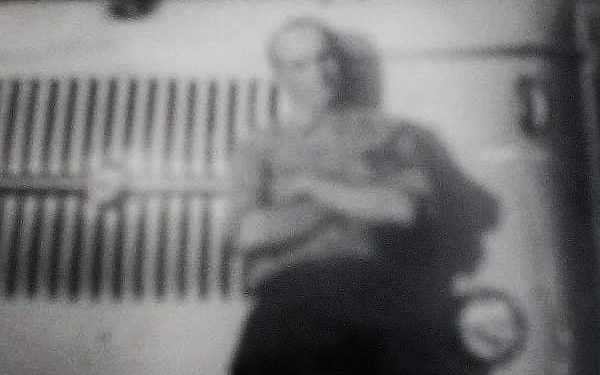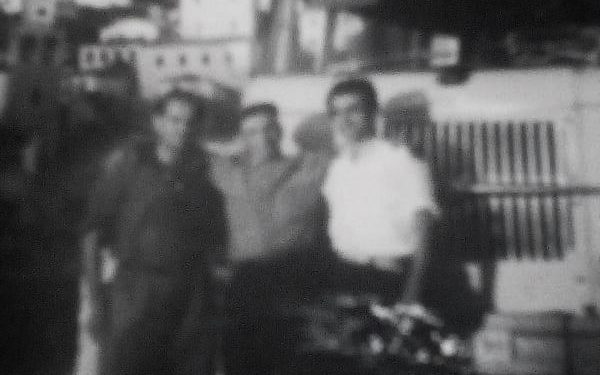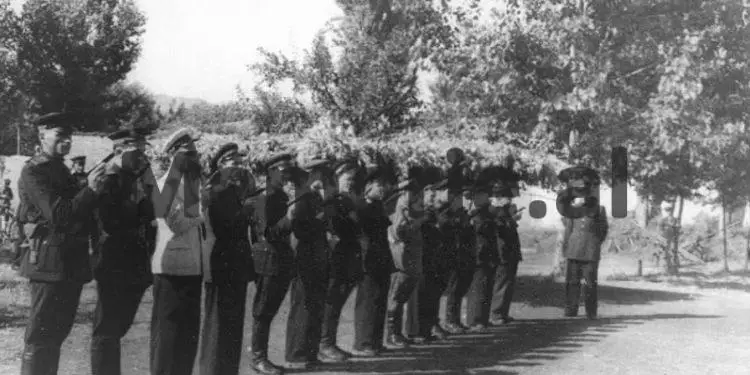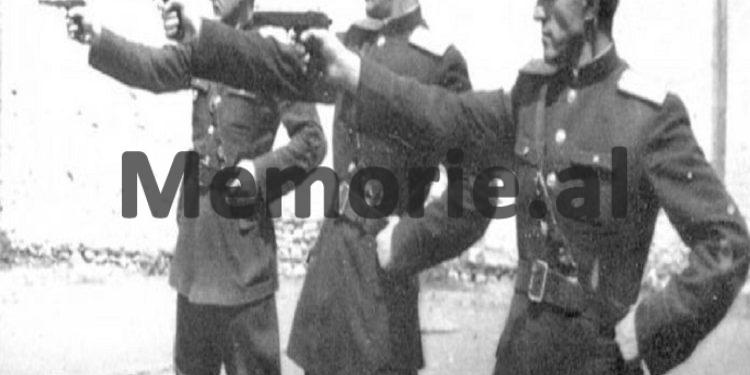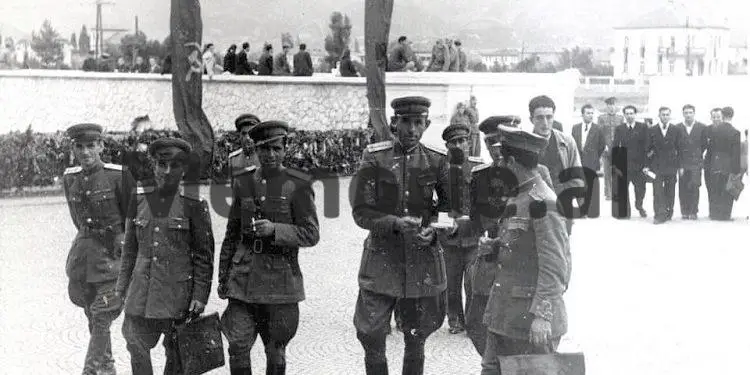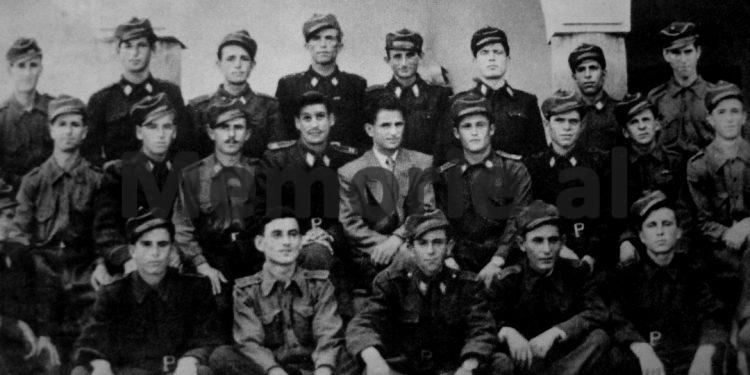From Agron Mema
Memorie.al / One of the highlights of the communist dictatorship in Albania is the “Class War”; shootings, murders without trial, imprisonments with unfounded accusations, deportations and persecutions in all its terrible forms and types, which in Albania came of a special kind, with the most wild and cannibalistic face, with the loudest sounds of tragedy and pain, with the harshest notes of hatred for life and the intensity of the greatest striking force, towards human virtues and morals, the burying alive of every dream, for the happy future. And of course, without knowing these well, there would be no sense in recognizing and denouncing the crimes of the communist dictatorship and the red terror itself, manifested in the most terrible and merciless form.
Thousands of innocent Albanians experienced this brutal system in prisons and concentration camps, internment camps and labor camps, experienced bullets and ropes, the loss of the grave, along with their remains that will never be found. A hopeless, overworked, hungry, exhausted and confused people.
One of these many sufferers of the dictatorial medieval-feudal communist system is Arsen Prifti, from the village of Piqeras on the coast of Saranda and his entire tribe. One of the largest and most prosperous tribes of the time in Piqeras and known throughout the coast and its villages, for its nobility and humanitarian aid to the poor. All associated with the Anti-Fascist National-Liberation War. Their two-story houses are located in the center of the village, where the residents say; “The Great Gate”. Early houses that still stand today. But, one year after the liberation of the country, in May 1945, the tragedy happened that would bring great misery on this tribe: imprisonment, exile and persecution, up to the third generation of Arsen’s descendants.
What happened in Piqeras, that May of 1945?
Arsen’s brother, Grigor Prifti (Goli), escapes to Greece in the first days of liberation. An escape that time has not shed light on and remains an enigma even today, although in the first years of democracy, Goli came to the village for a few days, but kept his mouth shut…! Goli had been a partisan and suddenly escapes, leaving behind a great tragedy for his tribe and many fellow villagers. Communist hatred and revenge would be unleashed on them, terrible and merciless. But they were not in a hurry. Time would bring new developments to the scene. Documents and rumors want to say that he came to the village several times as a saboteur, but this was not proven even though many people were punished and were in great danger. Only the incident, which we will narrate below, is factual.
His fellow villagers described Goli as physically strong, wise and brave. You have natural, admirable intelligence. The event that caused the tragedy on his tribe and documented as the last arrival in the homeland from the Greek state, is that of May 1945. One of the oldest people of the village of Piqeras and tribe with Goli, the 87-year-old Aleksandro Prifti, says that: “That night, the basic organization of the parties, which gathered in a meeting at the large two-story building in the center of the village, the House of the Center of which is the same today. The party and the front were signaled by the State Security, that Grigor Prifti had come to the village as a saboteur for acts of terrorism and measures had to be taken for his arrest.
They held meetings on the second floor of the building, while Goli hid on the first floor and listened to them. At a moment after midnight, when the discussions got heated, Goli took his wife and children and one of his fellow villagers, the lady of the house where the meeting took place, Leni Qëndron, (who had her husband in America and then joined her husband), and told them and Vito Qesari that; had talked with her husband in America and had permission to take her and take her to her husband, but she refused, because she had many children and they were small, there was no place to leave them. Goli with his wife, children and Leni, went down to the sea, where the boat was waiting for them and left for Greece. The next day, the event became known. The Central Committee of the ALP, with a special order from Enver Hoxha, took the decision to merge the basic organization of the party”!
Perhaps this is a special case in Albania, during the entire time of communist rule. And arrests and deportations would begin with absurd charges, and this absurdity is shown by the first decisions of the courts and their annulment. The purpose was elsewhere. The famous “class war” and the expropriation of the peasantry would begin, and this would be accompanied by terror and blackmail against rich and middle-class families. This started a year ago, when one of the richest people in the village, Llukan Xhani, was arrested on the charge; “Greek agent” and was initially sentenced to 20 years in prison and then released, because the charges were not substantiated. Now came a bigger turn, a longer war, which would only end at the end of 1990.
Filip Laska and Kiço Çuni, both shepherds, were arrested after Goli’s spectacular escape with his family. They were accused of; they had sheltered Goli several times, when he had entered Albania from the Greek border. Filipi was sentenced to 21 years and Kichua 12, but they did not serve all the years in prison. Another convict was Thanas Prifti, a former partisan of the 6th Assault Brigade, but he went instead of his father and served four years in prison and was released as a former partisan, while Kiço Çuni was released after 6 months. that the accusation of being Gol’s host was not proven. Goli’s father, Lonidha Prifti, was exiled to Lushnjë, but he returned to the village very quickly, adding to the wonder of this tolerance, only within a year.
But they had not forgotten: his brother Arqile Prifti was exiled for 20 years in Kruja. In Kruja, a baker’s wife, Vasiliqi Voda, who had a husband in America, but could not run away with Goli, was interned for 2 years, while the State Security suspected that Goli would come back and take her, so they interned her, for be more confident. Some families were stripped of their front hats, and two kulaks were declared, Timoleo Bitri and the village teacher, Dhimitër Vrana. The entire tribe of Priests, their friends and companions, relatives and friends were persecuted.
But the heaviest burden of the shot fell on Gol’s other brother, Arsen Prifti. He was sentenced to be shot, but then he was reduced to 25 years in prison, of which he served 17. His heir relatives say that he was arrested even though he had been a supporter of the partisan war, polyglot, with 6 foreign languages, as well as police inspector. But not only did the communists not spare him, but he suffered the most of all. Arseni and Timoleo Bitri, saved the men of the village from German shooting.
After the massacre in the villages of Breg, Nivicë-Bubar and Shën-Vasi, the German Nazis gathered the men of the village of Piqeras in front of their machine guns, which did not know how to forgive if human life was taken. The situation was dangerous and time did not wait. Thanks to his command of the German language, Arseni communicated with the command and the situation was defused. Together with the again of the village, Timoleo Bitrin, they made a large payment with napoleons of gold and olive oil. The men of the village escaped the massacre.
Arsen’s relatives say that during the first 9 months of his arrest, they had no news about Arsen until they lost hope that he was still alive. Their ears had heard many criminal deeds of the new communist rulers. The first signal that Arseni was alive came from a village woman (M. M.). She got out of the car in Saranda, because an acquaintance of hers spied on her for a bag of corn that she secretly had with her. They brought him down and escorted him to the Internal Branch, but after taking his bag, they released him. But the woman going out to the courtyard of the Inner Branch, to the pine tree that is still there today, as the only witness to the crimes and inhumane tortures, saw Arsenin, tied up, bone and skin, emaciated to death.
He recognized him only by his eyes. So, tied to a pine tree, they had painted him with honey and his body was full of flies. A torture, that Arseni only moaned from the depths of his soul and that moan barely came out of his empty mouth. The fellow villager screamed in agony at this macabre sight and fell unconscious. So the news came to the village that Arseni was alive, living, or rather breathing. Arseni would try on his emaciated and emaciated body, weakened to the point of withering, all the cruelty and the most inhuman tortures, until he was forced to accept the charge, as harboring his fugitive brother.
To the tortures of his colleagues, the unyielding Arseni, never accepting the accusation, answered: “It is not true that I sheltered him, nor did I meet him. Being a Sigurimi operative, I had two options not to end up in these cells and face these undeserved tortures and baseless accusations; first, I ran away with him, like the others, and second, I threw the bars and brought him here, handed him over to the police. I didn’t have to endure so much torture in the dungeons, why to experience so much suffering and leave the children on the streets, because working here, I know the situation well. Yes, I have never met him”!
But the court first sentences him by firing squad. Then it decreases to 25 years, of which he made 17 of them. When Arseni was imprisoned, he left his young wife with children, mother Vito, as our generation knew him, at home. She later remembered with respect, the treatment that her fellow villagers initially gave her, with the chairman of the popular council, Andrea Xhani, who told her to stay for some time without entering the cooperative, because she had a husband in prison and small children. They needed economic opportunities to cope with the situation they faced. And they left it for two years with private property, without joining the cooperative. But this detail shows that the peasantry did not receive the collectivization well, turning into “grudging volunteers”.
The peasantry was convinced with its wisdom, that the cooperative; “What do you want from me”, would make you beg at every door, a great poverty. After 17 years of torture and suffering, Arseni comes out of prison with half of his body, the other half of which he had left in the amortized cells. He tried all the terrible prisons of the time and the moment he was released, he was in the construction of the Chemical Fertilizer Plant. He would tell his relatives the dark memories of the cell. The food that, when brought to them, they poured water into their cells, they were not supposed to sit down, but they ate standing up, that food that made their mouths poison, as if they were chewing tobacco particles in their mouths.
But he also told when they forced him to eat the vomit of his friends (readers sympathize). He told to leave them behind as sad memories, that maybe one day, they would be shown more as a denunciation to never agree with the red dictatorship, or of any kind of form or color. It showed hundreds of other tortures tried on the body, so much so that the relatives, when they want to tell them, are choked by tears and the words get stuck in their throats, they no longer come out. The torture that took his life very quickly, from the rotting of the organs and the flesh of the limbs.
Tried the most notorious prisons of Albania, May 1945-1966, until his sentence in prisons and inhumane cells ended. Days in the cells, the pain and concern were stirred only by the images of the smile of his Victory, which was far away, there in the village, tearful and tormented, to the depths of her soul, the voices of his children, who has become a tempting commodity. Old dreams, pain that boiled in his chest and to be taken by the mill of lack, to grind and crumble, to become many and never end.
He said that on the day of his release, he reached Durrës, stayed to meet his uncle, and the next day, he left for Saranda. In Durrës, he met his fellow villager, Vasil Gjini, who worked as a driver there. Vasili immediately arranged a shipment to Saranda and they set off. On the way, Vasili returned to Levan, where Arsen’s other brother, Llukë Prifti, was exiled. Whenever Vasili told the story of that emotional meeting of the two brothers, he burst into tears. So he came to the village, to end his suffering life, without any guilt. It went out to a small rock, in front of the gate of his house.
He would bring a small cushion to sit on and for about three hours, he would read a thick book. He got up and went home, silent. The suffering and torture had decomposed his organs and the flesh of his limbs, and after five years of release from prison, he passed away, leaving behind a memory of a life full of innocent suffering, a sad thought about why this happened in small Albania , departed from life with a spiritual sorrow, leaving the children behind, the persecution of the class war, without any guilt, persecution that continued until the third generation, with the ban on the education of the children of his son, Napoleon, especially the daughter of great, Vitoria. A lifetime full of human drama! Memorie.al
Taken from Kujto.al




